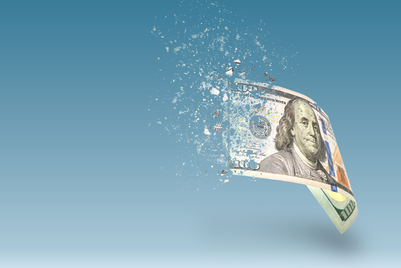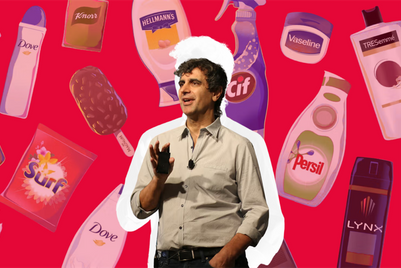
Unilever has grown its brand and marketing investment against a backdrop of major overall cost savings, chief financial officer Graeme Pitkethly has said.
A plan to cut costs by €2 billion (US$2.5 billion) a year was announced by the FMCG giant last April, in the wake of Kraft Heinz’s aborted takeover bid.
Changes revealed by Unilever included halving the 3,000 creative agencies it worked with worldwide, and cutting the number of ads it produced—instead using a smaller number of ads for longer periods of time.
Speaking on a call to journalists as the business revealed its full year results for 2017, Pitkethly said that two-thirds of the money saved had been reinvested in building capabilities. Brand and marketing investment had gone up, he said, while media spend was up $312 million, offset largely by lower production costs.
Unilever's marketing budget in 2016 was $9.6 billion, according to its annual report. In December, it moved its global comms planning account from PHD to Mindshare, without a review.
Last week, arch-rival P&G said it has also increased adspend, despite even more drastic cuts to its agencies.
Despite ongoing concerns about brand safety, verification and fraud that have dominated the marketing agenda in the last year, Pitkethly said Unilever had particularly stepped up its investment in digital. "We continue to be really competitive in our share of voice" in digital channels, he said.
Unilever’s changes in how it creates and distributes marketing assets are part of its long-term Connected For Growth restructuring programme, which chief executive Paul Polman said on the call was allowing the business to "address the tectonic shifts that are happening across the consumer landscape".
The results were better than expected, with both sales volumes and prices up on 2016, and growth in all four sections of the company: personal care, home care, food and refreshment.
Polman credited a number of factors for the performance: an improving global economy, technological innovation, the strong performance of key brands like Dove and Knorr, the high rate of acquisitions—which number 11 in the last year, and 20 in the last 30 months—and the series of six original brands launched by Unilever last year.
"There are plenty of sources of new growth, from evolving technology to the power of purpose," Polman said. "We increasingly see that consumers are looking for brands that serve a positive social purpose. The trends for more natural, free from, bio, and so on, are only accelerating."
One brand in that arena that has attracted Unilever’s attention is "healthy" ice cream, Halo Top, which last year overtook Unilever’s Ben & Jerry’s to become the best-selling pint-tub of ice cream in the US.
Unilever has been linked to a $2 billion acquisition of the startup, but Polman said it was focusing on its own high protein, low-calorie product under the Breyers brand, including in the UK—where Halo Top launched last month.
"The success of that [low-calorie ice cream] has surprised us in the US," he said. "We’ve also taken the precaution to also launch these variants in the UK – we think we’re entering the UK before that competitor [Halo Top]."
Unilever’s acquisitions and launches would increasingly move the business in a more premium direction, Polman said. He pointed to the tea sector, where there company made two major acquisitions last year—Tazo (from Starbucks) and Pukka Herbs—as well as launching its own premium tea brand, Pure Leaf.
Other new brand launches this year included US natural hair and shower brand Love Beauty and Planet; Red Red, a brand of vegan snack pots launched in the UK and inspired by Ghanaian cuisine; Hijab Fresh, a cosmetics brand in Indonesia aimed at hijab-wearing Muslim women; and Dove extension Baby Dove.
Unilever has begun the process of finding Polman's replacement as chief executive, though he is not expected to leave until 2019.




.jpg&h=334&w=500&q=100&v=20250320&c=1)
.jpg&h=334&w=500&q=100&v=20250320&c=1)



.jpg&h=334&w=500&q=100&v=20250320&c=1)
.png&h=334&w=500&q=100&v=20250320&c=1)


.jpg&h=268&w=401&q=100&v=20250320&c=1)
.jpg&h=268&w=401&q=100&v=20250320&c=1)




